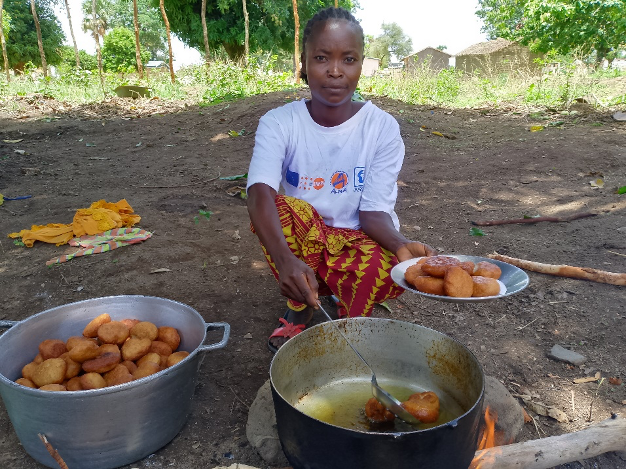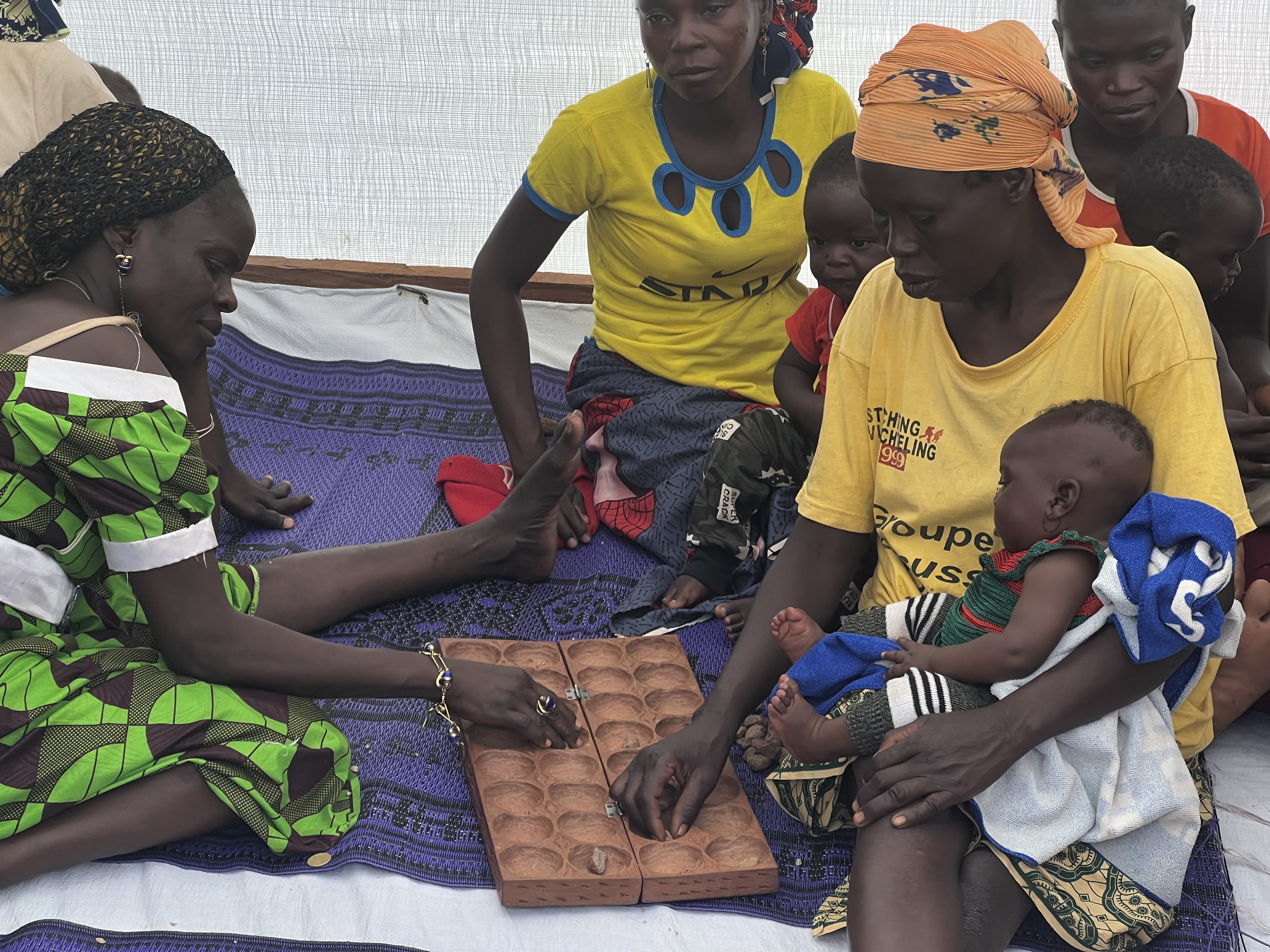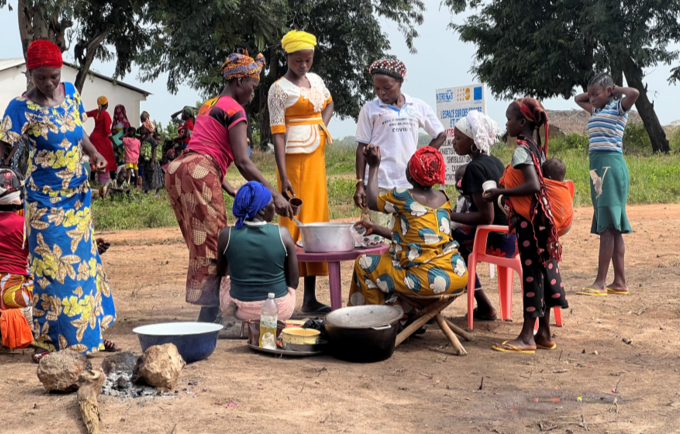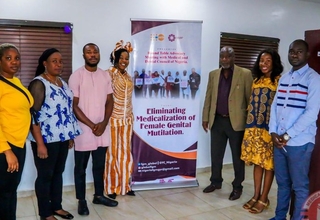In the locality of Boukaya, in the northwest of the Central African Republic, the challenges faced by women and girls are exacerbated by the persistence of armed conflicts and chronic insecurity. Gender-based violence is a daily reality for many, and access to safe and viable economic resources is often out of reach.
However, thanks to the intervention of UNFPA, and its project financed by the European Union, a substantial change is taking place. This project aims to provide integrated sexual and reproductive health (SRH) and combating gender-based violence (GBV) services for Central African populations affected by years of armed conflict.
Marlène Zari, a 25-year old farmer and mother of five children, testifies to the transformational impact of this initiative. Before the intervention of UNFPA and its implementing partner, INTERSOS, Marlène was mainly concerned with daily survival and the constant threat of attack if she ventured into the fields.
In the heart of Boukaya, the safe space set up by UNFPA and run by the NGO, INTERSOS, is a place of refuge against violence but also a place of learning and emancipation for women and girls in the community. For Marlène, the pastry training offered in this space opened up new opportunities to provide for her family without risking her safety. “The establishment of the safe space in Boukaya was very beneficial for us. It allowed me to learn a lot about GBV and to learn baking,” shares Marlène. She adds, "I am afraid to go to the fields because of the armed men who do not hesitate to sexually assault us. [As a result], I am content with this activity to support my family."

The plight of women and girls in the region is highlighted by alarming statistics. In the Central African Republic, 850,000 women are impacted by the crisis and require urgent health and protection services. Existing health and protection structures have been weakened and are unable to provide the necessary health and protection services. The CAR faces a shortage of health workers, infrastructure, medical equipment, combined with difficulties in physical access. Only 27% of GBV survivors access medical services within 72 hours of the incident.
UNFPA's intervention in the Boukaya safe space, thanks to financial support from the European Union, goes beyond training on income-generating activities (IGA). It also includes educational sessions on women's rights and awareness raising on forms of GBV which are crucial components of this project. These sessions help equip women with the knowledge to advocate for themselves and to seek help when needed.
The impact of the safe space and interventions in Boukaya is resonating across the community, with calls to expand the project to other areas of Bocaranga. Beneficiaries, satisfied with the changes observed, note a notable improvement in their quality of life and express a high probability of recommending these services to others.
To scale up its impact, the project is deploying an integrated service offering, carried out in collaboration with the Alliance for International Medical Action (ALIMA), an NGO, to guarantee comprehensive medical care. This multidisciplinary strategy aims to help in achieving UNFPA’s three transformative results: zero preventable maternal deaths, zero unmet need for family planning, and zero gender-based violence and harmful practices. This also includes the prevention and treatment of sexually transmitted infections (STIs) and HIV, as well as the management of early and unwanted pregnancies often resulting from sexual assault. By integrating SRH services with those to combat GBV, this program ensures comprehensive care that respects and strengthens the dignity and resilience of women and girls in Boukaya.



